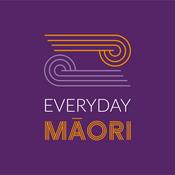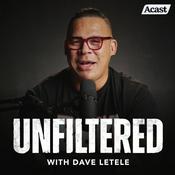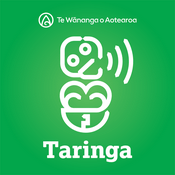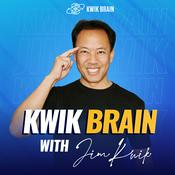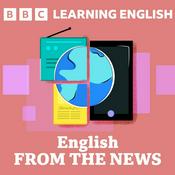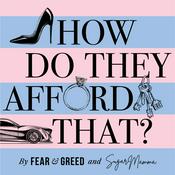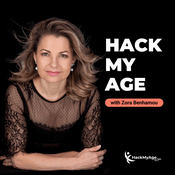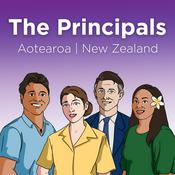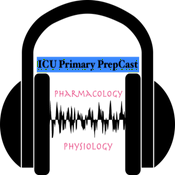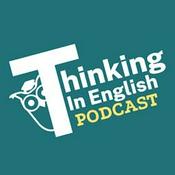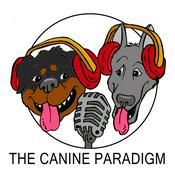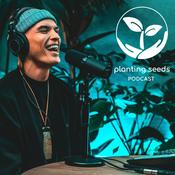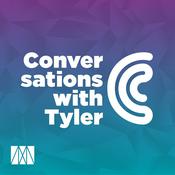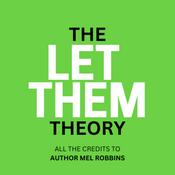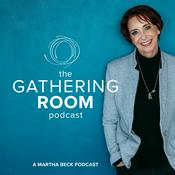227 episodes
- One of the best things about this job is that I get to find out about and share some of the most exciting new developments in education all over the world, sometimes in the most unexpected places. My guest this week, the writer, human rights activist, turned educational entrepreneur Ben Rawlence and his amazing team are building just that in a small market town called Talgarth in mid-Wales. Black Mountains College is an incredible institution working with young people locally in mid-Wales and from across the UK, set up as an alive and direct response to the climate and ecological emergency to help create a future in which nature and human societies thrive. As you’ll hear Ben describe, the college is part of a tradition of land-based alternative education organisations such as Dartington College in the UK (https://en.wikipedia.org/wiki/Dartington_College_of_Arts) and Rabindrath Tagore's Visva-Bharati University in India (https://en.wikipedia.org/wiki/Visva-Bharati_University) and is continuing and updating this tradition to become one of the most inspiring examples globally of what is possible and needed in these times. Ben is an award-winning writer, activist, and former speech writer to Sir Menzies Campbell and Charles Kennedy. He was a researcher for Human Rights Watch’s Africa division, worked for the Social Science Research Council in the USA, the Liberal Democrats in the UK and the Civic United Front in Tanzania.
His books include The Treeline: The Last Forest and the Future of Life on Earth and his forthcoming book Think Like a Forest: Letters to my Children from a Changing Planet.BMC website: https://blackmountainscollege.uk/
Beth Nawr Festival: https://blackmountainscollege.uk/events/beth-nawr-festival-2026/
Ben's Wikipedia entry: https://en.wikipedia.org/wiki/Ben_Rawlence
Ben's previous books: https://uk.bookshop.org/beta-search?keywords=Ben+Rawlence Embodied Critical Thinking - A Conversation with Donata Schoeller and Sigridur (Sigga) Thorgeirsdottir
07/2/2026 | 51 mins.There aren't many things that prompt widespread agreement from people on all sides of the various educational debates. But whatever your educational stripes, young people becoming better critical thinkers usually gets unanimous support. And, arguably, it's being recognised as increasingly important in a world full of AI-generated content and chatbots pretending to be your friend! So I was completely fascinated when I discovered the work of my guests this week, who, as professors of Philosophy, are exploring the often overlooked embodied process of what it feels like to engage in critical thinking and how that process gets shaped by our experiences and inspirations.
The fact that thinking comes from somewhere, is very often forgotten in the encouragement of our students to develop their "analytical", "rational" and "logical" skills in pursuit of objectivity. This applies as much in sciences and maths as it does in other humanities subjects like philosophy. And it has major implications for how we teach critical thinking in sophisticated ways aligned with the latest cognitive science, rather than perpetuating the narrow idea that it is simply a dispassionate logical set of computations (which we're clearly seeing the LLMs are much better at than us squishy humans who care about stuff!).
Donata Schoeller - https://www.donataschoeller.com/ - is Research Professor, Philosophy, at the University of Iceland, Iceland and Associate Professor at the University of Koblenz. She is a Principal Investigator, and Conceptual Director of “Freedom to make sense: Embodied, experiential Inquiry and Research,” and the Academic Director of the European Erasmus programmes Training Embodied Critical Thinking and Understanding. She has researched and published extensively on embodied thinking, while developing international and interdisciplinary research and training cooperations on the topic. Recent publications: “Thinking at the edge in the context of embodied critical thinking: Finding words for the felt dimension of thinking within research,” Phenomenology and the Cognitive Sciences, 2022, Close Talking: Erleben zu Sprache bringen, 2019, Saying What We Mean, with Ed Casey, 2017, Thinking Thinking, with Vera Saller, 2016.
Sigríður (Sigga) Þorgeirsdóttir - https://english.hi.is/staff/sigrthor - is a professor of philosophy at the University of Iceland. She is Principal Investigator of the “Freedom to make sense: Embodied, experiential Inquiry and Research” project, and one of the leaders of the “Training Embodied Critical Thinking and Understanding” training programme. She specialises in the philosophy of the body, the philosophy of the environment, the philosophy of Nietzsche, feminist philosophy, and women in the history of philosophy. She is Chair of the Committee on gender issues of International Federation of Philosophical Societies (FISP) that sponsors the World Congress of Philosophy.
Useful Links:
Training Embodied Critical Thinking and Understanding (TECTU) 2024-2026: https://www.trainingect.com/
Freedom to Make Sense - Center of embodied, experiential and mindful research and education: https://makesense.hi.is/
Practicing Embodied Thinking in Research and Learning
Edited By Donata Schoeller, Sigridur Thorgeirsdottir, Greg Walkerden:
https://www.taylorfrancis.com/books/oa-edit/10.4324/9781003397939/practicing-embodied-thinking-research-learning-donata-schoeller-sigridur-thorgeirsdottir-greg-walkerden- The following conversation is definitely a wild ride*! It's not an argument often made, but I believe that one of the effects of our industrialised education systems is to create the illusion that the world is full of somewhat fixed and ordered things, that don't move or change much. Of course, we teach our children about orbiting planets, the water cycle or change in historical periods. But, for example, in episode 208, Vanessa Andreotti gave a great example of how we name objects in the world, such as trees, in order to teach about them. In doing so, we draw a boundary around a tree that separates it from all non-trees. This sounds kind of philosophical and abstract, but I think the effects of it are very real. Most young people then learn to read the world as a collection of more or less fixed objects, rather than as patterns of relations.
My guest this week has been exploring the depths of these questions for a long time through the lens of movement. As you will hear, Professor Thomas Nail started this line of inquiry researching human migration, and went on to develop an entirely new discipline of the philosophy of movement by pulling at the threads of how far our collective obsession with order and stasis goes! And it definitely goes back at least a couple of thousand years!
Thomas Nail is a Distinguished Scholar and Professor of Philosophy at the University of Denver and author of numerous books, including The Figure of the Migrant, Theory of the Border, Marx in Motion, Theory of the Image, Theory of the Object, Theory of the Earth, Lucretius I, II, III, Returning to Revolution, and Being and Motion.
Some useful links:
https://liberalarts.du.edu/about/people/thomas-andrew-nail
https://en.wikipedia.org/wiki/Thomas_Nail
The Philosophy of Movement website: https://philosophy-of-movement.com/
'The Birth of Chaos Before Physis': https://youtu.be/c3S4w7C2dGg?si=H-1RlmaK7p3x7C4a
The Philosophy of Movement: https://www.youtube.com/live/YQUtX64uqNc?si=EeP3mP4Z-6_4-DK1
What is New Materialism paper: https://www.researchgate.net/publication/337351875_WHAT_IS_NEW_MATERIALISM
'The Random Walk of the Brain' (article in Salon): https://www.salon.com/2021/08/28/walking-and-spontaneous-fluctuations-brain/
*In the conversation, Thomas uses the word 'cosmogony' which in hindsight I wished I had asked him to define. Simply put it is a theory about how the cosmos or universe originated. Learning What Matters, System Transformation in Africa - A Conversation with Dr Modupe (Mo) Olateju
18/1/2026 | 48 mins.It's pretty clear from the statistics that there is a huge youth demographic bulge on the continent of Africa. 40% of its population is aged 15 or younger (as of 2021). The population of young people aged 15-24 in Africa is projected to reach 500 million in 2080. But as Prof. Kingsley Moghalu from the African School of Governance said at Harvard University’s African Development Conference in April last year, there is no guarantee that this will lead to positive outcomes for individual young people, countries or the continent as a whole. In order to enable all these amazing possibilities education is going to be a key factor in these emerging possibilities and scenarios.
There are few researchers, communicators or advocates of education across Africa more brilliant or well-placed than my guest this week to speak to these questions.
Dr. Modupe (Mo) Olateju is a fellow with the Center for Universal Education in the Global Economy and Development program at Brookings Institution. She is an international development specialist with expertise in public-private partnership in education with additional research interests in education innovation and foundational learning. She established The Education Partnership (TEP) Centre and led the organization’s pioneering work in applied education research in Nigeria and across Africa for 10 years. She is also Board Chair at the Malala Fund and member of the Executive Board at Fab AI.
Links to Mo's work:
https://moolateju.com/
https://www.linkedin.com/in/mo-adefeso-olateju/
https://www.brookings.edu/people/modupe-mo-olateju/
https://tepcentre.com/
Ref. Africa By 2040: The Future of Africa’s Youth. Keynote Address by Professor Kingsley Moghalu President, African School of Governance. Harvard University’s African Development Conference 2025, 12 April 2025. https://asg.ac/africa-by-2040-the-future-of-africas-youth/- In the current context of ubiquitous digital tech and runaway generative AI, you'd think that a book calling out our collective delusions about digital tools in relation to learning wouldn't make much of a splash! But Jared Cooney Horvath's latest book 'The Digital Delusion: How Classroom Technology Harms Our Kids’ Learning -- And How To Help Them Thrive Again' (https://www.barnesandnoble.com/w/the-digital-delusion-jared-horvath/1148995809?ean=9798218880378) is currently #1 on the Amazon bestseller list in Educational Psychology and has been receiving a lot of love, including from actor and educational activist, Hugh Grant, and author of The Anxious Generation, Jonathan Haidt!
Jared is an old friend of the podcast, so I was really happy to invite him back on for a conversation about our shared concerns about the impacts that digital tech is having on our young people, the dubious motivations of Big Tech and the strange and growing alliance that is developing between people of all educational persuasions!
Jared Cooney Horvath (PhD, MEd) is a neuroscientist, educator, and best-selling author who specializes in human learning and brain development. He is the creator of The Learning Blueprint, an international award-winning program helping educators and students understand how learning actually works.
Jared has conducted research and taught at Harvard University, Harvard Medical School, and the University of Melbourne, and has worked with more than 1,000 schools around the world. He is the author of six books, has published over fifty research articles, and his work has appeared in The New Yorker, The Atlantic, The Economist, Harvard Business Review, and ABC’s Catalyst.
Jared currently serves as Director of LME Global, an organization dedicated to bringing cutting-edge brain and behavioral science to educators, students, and communities.
Jared's website: lmeglobal.com
Jared's previous books: https://www.goodreads.com/author/list/8069909.Jared_Cooney_Horvath
LinkedIn: https://www.linkedin.com/in/jared-cooney-horvath/
Previous episode with Jared on the podcast: https://www.goodimpactlabs.com/podcast/dr-jared-cooney-horvath
More Education podcasts
Trending Education podcasts
About Future Learning Design Podcast
We are stuck in an old paradigm, with institutional structures that were built for a world that no longer exists. Within education, passionate entrepreneurs & committed citizens are no longer waiting for these broken formal institutions to be reformed. All over the world, they're designing & building their own local responses with relationships at their core. These are the education ecosystems that our young people need and out of which new institutions will emerge. This podcast is an inquiry into these fundamental changes and an invitation to join the movement to help nurture positive change.
Podcast websiteListen to Future Learning Design Podcast, The Rich Roll Podcast and many other podcasts from around the world with the radio.net app
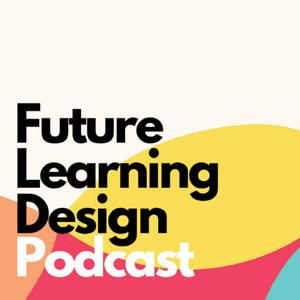
Get the free radio.net app
- Stations and podcasts to bookmark
- Stream via Wi-Fi or Bluetooth
- Supports Carplay & Android Auto
- Many other app features
Get the free radio.net app
- Stations and podcasts to bookmark
- Stream via Wi-Fi or Bluetooth
- Supports Carplay & Android Auto
- Many other app features


Future Learning Design Podcast
Scan code,
download the app,
start listening.
download the app,
start listening.





